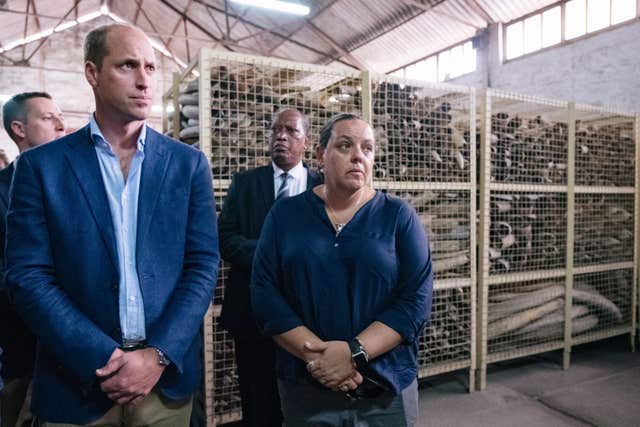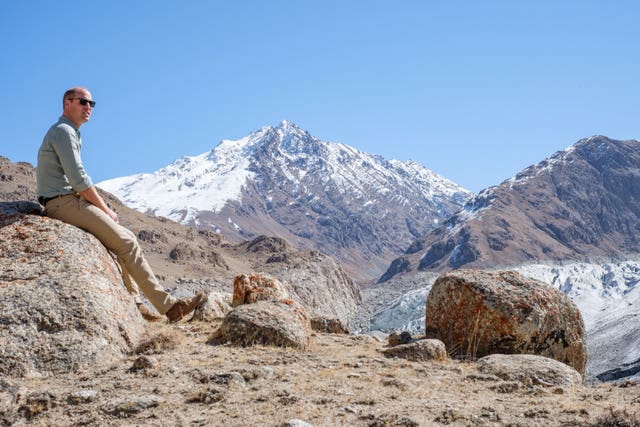
The Duke of Cambridge challenged himself to make a “positive personal” contribution in the fight against climate change so he could look his “children in the eye” and say he had done his “bit”, a royal aide has said.
William’s thinking behind establishing his ambitious Earthshot Prize was revealed ahead of the announcement, later on Friday, of the first 15 finalists and their innovative solutions to “repair” the planet.
In his introduction for the official Earthshot book, the duke said he wanted his environmental prize – which has a £50 million prize pot – to recapture the “human ingenuity, purpose and optimism” associated with John F Kennedy’s “Moonshot” challenge.

Jason Knauf, chief executive officer of William’s Royal Foundation, said: “The challenge the duke set himself was ‘What is the maximum positive personal contribution I can make in the next 10 years in the fight against climate change?
“‘What am I going to do in the next decade that means I can look my children in the eye and say that I did my bit?’ Every aspect of the prize bears the stamp of his contribution.”
In his introduction to Earthshot: How To Save Our Planet, published later this month, the duke says about his inspiration: “I wanted to recapture Kennedy’s Moonshot spirit of human ingenuity, purpose and optimism, and turn it with laser-sharp focus and urgency on to the most pressing challenge of our time – repairing our planet.”
William spent two years working on the project with his Royal Foundation, and the seeds of the idea were sown during a visit to Namibia, Tanzania and Kenya in autumn 2018, when he met frontline conservation workers and those from local communities.
In the introduction he says the crucial moment was the leg in Namibia when he made an early-morning trip to try to catch a glimpse of black rhino.
“We choose to go to the Moon…” 🌕
Today we’re proud to announce our partnership with @JFKlibrary, as we work to discover, celebrate and scale the best solutions to the world’s greatest environmental challenges. 🌍https://t.co/ByeP1xnP7X pic.twitter.com/0fr3WscESt
— The Earthshot Prize (@EarthshotPrize) September 13, 2021
“The rich wildlife that I saw thriving on that visit struck a real chord. The community conservancy model is a prime example of how a simple, positive solution can have wide-reaching benefits for both humans and nature.
“Most importantly of all, it is a success story that can be replicated and scaled. I wanted to find a way to bottle that innovation and community spirit and mass-produce it globally.”
The duke said he saw his ambitious project as a means to turn around pessimism about the planet’s future, as he believed at the time there was “a real risk that people would switch off, that they would feel so despondent, so fearful and so powerless”.
He added: “I started thinking about what to do to change the equation to something else: urgency + optimism = action. The most famous example of using optimism to rise to a great challenge is the Moonshot…”
The prize is likely to be seen as William’s career-defining project, like his father’s Prince’s Trust or grandfather’s Duke of Edinburgh Award scheme, and reflects his growing confidence.

Every year from 2021 until the end of the decade, winners in five categories will each receive £1 million after being picked by a judging panel consisting of the duke and leading figures.
The Earthshot Prize takes its inspiration from the Apollo Moon landings, nicknamed Moonshot, which helped advance mankind’s technological achievements, and features five Earthshots which, organisers say, if achieved by 2030 would improve life for all.
Each has £1 million in prize money which will support environmental and conservation projects agreed with the winners, who could be individuals, a group of scientists or activists, businesses, governments and even a city or country.
They will be recognised for new ideas, technologies, policies or solutions which tackle one of the five Earthshots: Protect and restore nature; Clean our air, Revive our oceans; Build a waste-free world; and Fix our climate.


Comments: Our rules
We want our comments to be a lively and valuable part of our community - a place where readers can debate and engage with the most important local issues. The ability to comment on our stories is a privilege, not a right, however, and that privilege may be withdrawn if it is abused or misused.
Please report any comments that break our rules.
Read the rules here